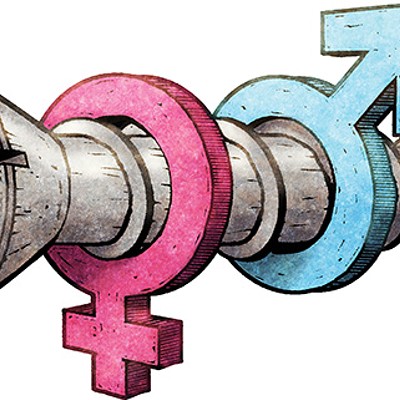I am a white female, and I am privileged. I got my first job before I was old enough to have a driver’s license, and I’ve worked ever since. I graduated from an excellent public high school and then a public college. I’m fortunate to work full-time, with benefits, in my chosen career field.
My life is amazing.
But I am white, female, well-educated and privileged. I benefit from special rights and advantages that most people don’t. It’s ridiculous to me that any man or woman — or parent — can believe their family and children are entitled to the fundamental right of quality public education while also believing that their “specialness,” or privilege, somehow allows them to withhold that fundamental right from others.
For years, my privilege didn’t register. My family is and was middle-class, and the fact that both my mother and stepfather taught in Edmond Public Schools allowed my brother and I fantastic educations. We all worked hard and went to school, and we assumed it was natural and right that any other family that works as hard deserves a quality education, too. It is common sense, right?
Because of my privilege, I didn’t realize “affluent suburb” for some also meant “more deserving” of a quality education.
Being poor or a minority or both is not a blame-worthy offense. A proven and well-documented, community-wide lack of income mobility isn’t synonymous with the unsupported — and damaging, privilege-laden — assumption that cyclic poverty is somehow an earned and deserved punishment for poor life choices or substandard parenting.
If urban parents don’t have the luck, education or the in-district teaching job that affords them the privilege of moving out of the urban core and into a “better” (better funded and run) school district, that does not equate to them being irresponsible, inadequate or lazy human beings.
An urban parent wants his children to succeed as much as every other good parent does. They work hard to set good examples. Their focus and lives are dedicated to raising their children, just like everyone else.
Federal government guidelines show a family of four lives in poverty if it earns less than about $24,000 a year. Research shows, and the National Center for Children in Poverty agrees, that on average, a four-person home must earn twice that amount in order to meet basic cost-of-living needs such as rent, groceries, utility payments and transportation to and from work and school. That’s almost $48,000 a year.
Zooming in further, Oklahoma minimum wage is $7.25 an hour. If both parents work full-time, together, they earn about $30,000 a year before taxes. That’s a reality many people face if they are denied quality educations from childhood onward.
When compared to 2013 census numbers that show Edmond’s median household income is over $71,000, the $41,000 income difference is staggering.
A more accurate representation is to compare Edmond’s median household income with OKC’s, which is less than $46,000. That’s still a $25,000 difference.
Also, about 10 percent of Edmond residents age 25 and over live below the poverty line, compared to about 18 percent of OKC residents. About 50 percent of Edmond residents have college degrees. Close to 30 percent of Oklahoma City’s population does.
Quality education is essential to improving income mobility, lifetime earning potential and quality of life.
Yet our urban schools are in crisis, and most of the metro — individuals, families, communities, lawmakers, leaders and business owners — has disengaged from its collective conscience.
We have a civic responsibility to address and improve our urban schools. Too many of us drive in from suburbs each day to work for much-higher pay than the residents of this city who devote their lives and families to maintaining and improving it.
We are hypocrites and idiots when we say, “Well, urban schools are bad everywhere,” and then fail to act in our own city and state to change it. Oklahoma City’s public schools grossly miss marks regarding essential early childhood achievement, the disproportionate rate of African-American suspensions and suspensions overall, reading, math and arts.
Not all urban schools are as dire as our urban schools.
As a community, all people — especially our youth — require and deserve access to quality public education. It’s a fundamental right.
Jennifer Chancellor is editor-in-chief of Oklahoma Gazette.
Print headline: The blindness of privilege













